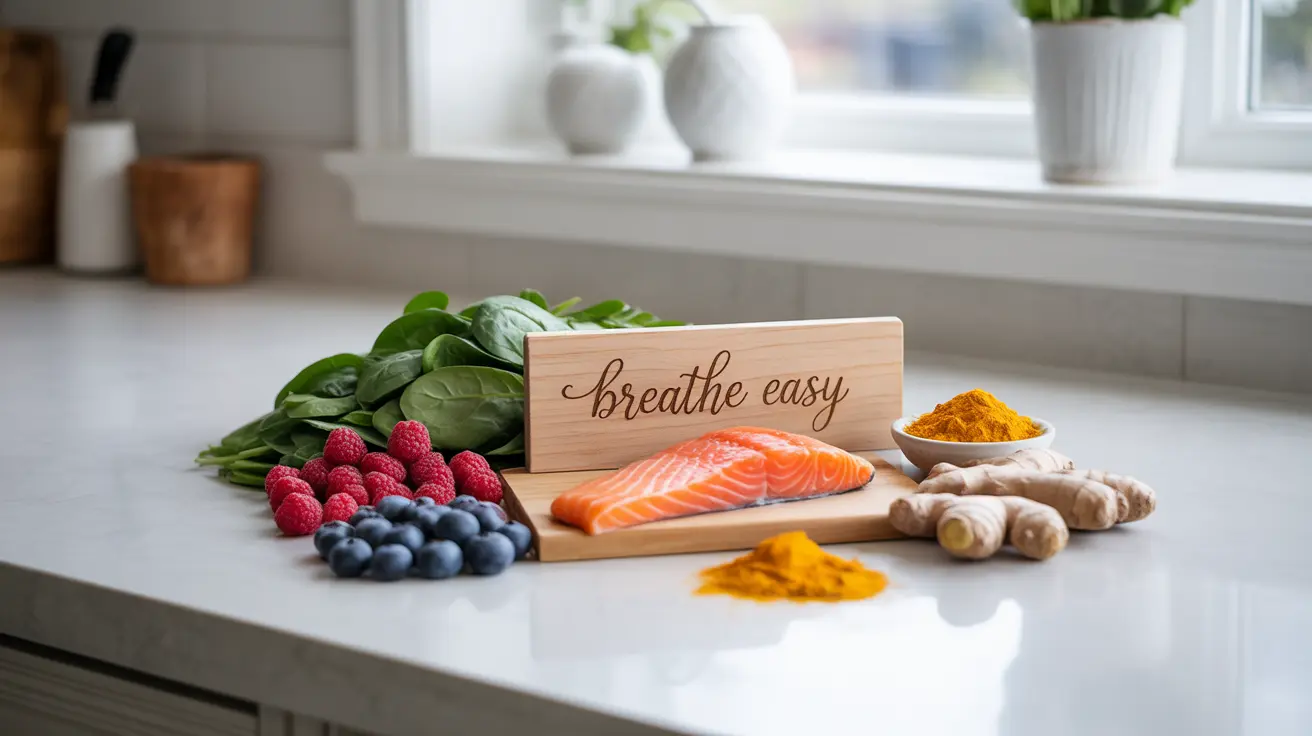When battling a lung infection, the foods you eat can play a crucial role in your recovery process. A well-planned diet rich in specific nutrients can help reduce inflammation, boost immune function, and support your body's natural healing mechanisms. Understanding which foods to incorporate into your diet during this time can make a significant difference in your recovery journey.
This comprehensive guide explores the most beneficial foods for lung infection recovery, along with evidence-based explanations of how different nutrients support respiratory health and immune function.
Antioxidant-Rich Foods for Lung Health
Antioxidants are powerful compounds that help combat oxidative stress and inflammation in the lungs. Several foods are particularly beneficial:
- Berries (blueberries, strawberries, raspberries)
- Dark leafy greens (spinach, kale, collard greens)
- Orange and red vegetables (carrots, sweet potatoes, bell peppers)
- Citrus fruits (oranges, lemons, grapefruits)
These foods are rich in vitamins C, E, and A, which help protect lung tissue and support immune function during infection recovery.
Protein-Rich Foods for Respiratory Health
Adequate protein intake is essential for repairing damaged tissue and maintaining immune system strength during lung infections. Focus on these sources:
- Fatty fish (salmon, mackerel, sardines)
- Lean poultry (chicken, turkey)
- Legumes (beans, lentils)
- Greek yogurt
- Eggs
These protein sources also provide additional benefits through omega-3 fatty acids and zinc, which help reduce inflammation and support immune function.
Anti-Inflammatory Foods and Spices
Certain foods and spices have natural anti-inflammatory properties that can help reduce lung inflammation:
- Turmeric (contains curcumin)
- Ginger
- Garlic
- Green tea
- Olive oil
Including these ingredients in your daily diet can help manage inflammation and support overall respiratory health.
Foods to Avoid During Lung Infections
Some foods can potentially worsen inflammation or compromise immune function during recovery:
- Processed foods high in refined sugars
- Excessive dairy products
- Fried foods
- Alcoholic beverages
- Foods with artificial preservatives
Limiting these items can help prevent additional stress on your respiratory system and support faster recovery.
Hydration and Lung Health
Proper hydration is crucial during lung infections. Focus on these beneficial beverages:
- Water
- Herbal teas
- Fresh vegetable juices
- Clear broths
- Coconut water
These fluids help thin mucus secretions and support optimal lung function during recovery.
Frequently Asked Questions
What are the best foods to eat to help recover from a lung infection?
Foods rich in antioxidants and anti-inflammatory compounds are best, including berries, leafy greens, fatty fish, citrus fruits, and herbs like turmeric and ginger. These foods provide essential nutrients that support immune function and reduce inflammation.How do antioxidants and anti-inflammatory foods support lung health during infections?
Antioxidants help neutralize harmful free radicals and reduce oxidative stress in lung tissue. Anti-inflammatory foods help decrease inflammation in the airways, making breathing easier and supporting the healing process.Can eating lean proteins like fish and poultry improve lung infection recovery?
Yes, lean proteins provide essential amino acids needed for tissue repair and immune system function. Fatty fish, in particular, offers additional benefits through omega-3 fatty acids, which help reduce inflammation.What fruits and vegetables are most beneficial for reducing lung inflammation?
Berries, citrus fruits, dark leafy greens, and bright-colored vegetables like carrots and bell peppers are most beneficial. These foods are rich in vitamins C, E, and A, as well as other antioxidants that help reduce inflammation.Which foods should be avoided because they may worsen lung infections or inflammation?
Processed foods, refined sugars, excessive dairy, fried foods, and alcohol should be avoided as they can increase inflammation and potentially slow recovery. These foods may also compromise immune function.




